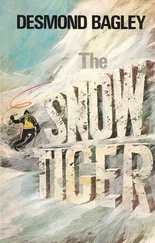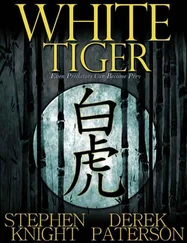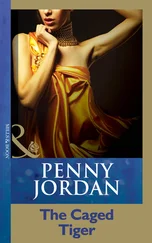The old woman would not take the money.
But the old man, the father, was eyeing the envelope. "At least you were man enough to come," he said.
"I want to help your other son," I said. "He is a brave boy. He stood up to the police the other night. He can come and be a driver with me if you want. I will take care of him if you want."
The woman clenched her face and shook her head. Tears poured out of her eyes. It was understandable. She might have had the hopes for that boy that my mother had for me. But the father was amenable; men are more reasonable in such matters.
I thanked him for the coffee, bowed respectfully before the bereaved mother, and left.
Mohammad Asif was waiting for me at the office when I got back. He shook his head and said, "Why? Why did you waste so much money?"
That's when I thought, Maybe I've made a mistake . Maybe Asif will tell the other drivers I was frightened of the old woman, and they will think they can cheat me. It makes me nervous. I don't like showing weakness in front of my employees. I know what that leads to.
But I had to do something different; don't you see? I can't live the way the Wild Boar and the Buffalo and the Raven lived, and probably still live, back in Laxmangarh.
I am in the Light now.
* * *
Now, what happens in your typical Murder Weekly story-or Hindi film, for that matter? A poor man kills a rich man. Good. Then he takes the money. Good. But then he gets dreams in which the dead man pursues him with bloody fingers, saying, Mur-der-er, mur-der-er.
Doesn't happen like that in real life. Trust me. It's one of the reasons I've stopped going to Hindi films.
There was just that one night when Granny came chasing me on a water buffalo, but it never happened again.
The real nightmare you get is the other kind. You toss about in the bed dreaming that you haven't done it-that you lost your nerve and let Mr. Ashok get away-that you're still in Delhi, still the servant of another man, and then you wake up.
The sweating stops. The heartbeat slows.
You did it! You killed him!
About three months after I came to Bangalore, I went to a temple and performed last rites there for all of them: Kusum, Kishan, and all my aunts, cousins, nephews, and nieces. I even said a prayer for the water buffalo. Who knows who has lived and who has not? And then I said to Kishan, and to Kusum, and to all of them: "Now leave me in peace."
And they have, sir, by and large.
One day I read a story in a newspaper: "Family of 17 Murdered in North Indian Village." My heart began to thump-seventeen? That can't be right-that's not mine. It was just one of those two-inch horror stories that appear every morning in the papers-they didn't give a name to the village. They just said it was somewhere in the Darkness-near Gaya. I read it again and again-seventeen! There aren't seventeen at home…I breathed out…But what if someone's had children…?
I crumpled that paper and threw it away. I stopped reading the newspaper for a few months after that. Just to be safe.
Look, here's what would have happened to them. Either the Stork had them killed, or had some of them killed, and the others beaten. Now, even if by some miracle he-or the police-didn't do that, the neighbors would have shunned them. See, a bad boy in one family casts the village's reputation into the dust. So the villagers would have forced them out-and they'd have to go to Delhi, or Calcutta, or Mumbai, to live under some concrete bridge, begging for their food, and without a hope for the future. That's not much better than being dead.
What's that you say, Mr. Jiabao? Do I hear you call me a cold-blooded monster?
There is a story I think I heard at a train station, sir, or maybe I read it on the torn page that had been used to wrap an ear of roasted corn I bought at the market-I can't remember. It was a story of the Buddha. One day a cunning Brahmin, trying to trick the Buddha, asked him, "Master, do you consider yourself a man or a god?"
The Buddha smiled and said, "Neither. I am just one who has woken up while the rest of you are still sleeping."
I'll give you the same answer to your question, Mr. Jiabao. You ask, "Are you a man or a demon?"
Neither, I say. I have woken up, and the rest of you are still sleeping, and that is the only difference between us.
I shouldn't think of them at all. My family.
Dharam certainly doesn't.
He's figured out what's happened by now. I told him at first we were going on a holiday, and I think he bought it for a month or two. He doesn't say a word, but sometimes I see him watching me out of the corner of his eye.
He knows.
At night we eat together, sitting across the table, watching each other and not saying much. After he's done eating, I give him a glass of milk. Two nights ago, after he finished his milk, I asked him, "Don't you ever think of your mother?"
Not a word.
"Your father?"
He smiled at me and then he said, "Give me another glass of milk, won't you, Uncle?"
I got up. He added, "And a bowl of ice cream too."
"Ice cream is for Sundays, Dharam," I said.
"No. It's for today."
And he smiled at me.
Oh, he's got it all figured out, I tell you. Little blackmailing thug. He's going to keep quiet as long as I keep feeding him. If I go to jail, he loses his ice cream and glasses of milk, doesn't he? That must be his thinking. The new generation, I tell you, is growing up with no morals at all.
He goes to a good school here in Bangalore -an English school. Now he pronounces English like a rich man's son. He can say "pizza" the way Mr. Ashok said it. (And doesn't he love eating pizza-that nasty stuff?) I watch with pride as he does his long division on clean white paper at the dinner table. All these things I never learned.
One day, I know, Dharam, this boy who is drinking my milk and eating my ice cream in big bowls, will ask me, Couldn't you have spared my mother? Couldn't you have written to her telling her to escape in time?
And then I'll have to come up with an answer-or kill him, I suppose. But that question is still a few years away. Till then we'll have dinner together, every evening, Dharam, last of my family, and me.
That leaves only one person to talk about.
My ex.
I thought there was no need to offer a prayer to the gods for him, because his family would be offering very expensive prayers all along the Ganga for his soul. What can a poor man's prayers mean to the 36,000,004 gods in comparison with those of the rich?
But I do think about him a lot-and, believe it or not, I do miss him. He didn't deserve his fate.
I should have cut the Mongoose's neck.
* * *
Now, Your Excellency, a great leap forward in Sino-Indian relations has been taken in the past seven nights. Hindi-Chini Bhai Bhai, as they say. I have told you all you need to know about entrepreneurship-how it is fostered, how it overcomes hardships, how it remains steadfast to its true goals, and how it is rewarded with the gold medal of success.
Sir: although my story is done, and my secrets are now your secrets, if you allow me, I would leave you with one final word.
(That's an old trick I learned from the Great Socialist-just when his audience is yawning, he says "one final word"-and then he goes on for two more hours. Ha!)
When I drive down Hosur Main Road, when I turn into Electronics City Phase 1 and see the companies go past, I can't tell you how exciting it is to me. General Electric, Dell, Siemens-they're all here in Bangalore. And so many more are on their way. There is construction everywhere. Piles of mud everywhere. Piles of stones. Piles of bricks. The entire city is masked in smoke, smog, powder, cement dust. It is under a veil. When the veil is lifted, what will Bangalore be like?
Читать дальше












